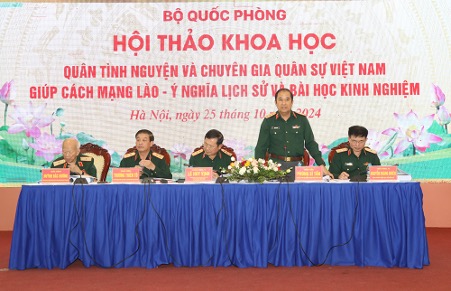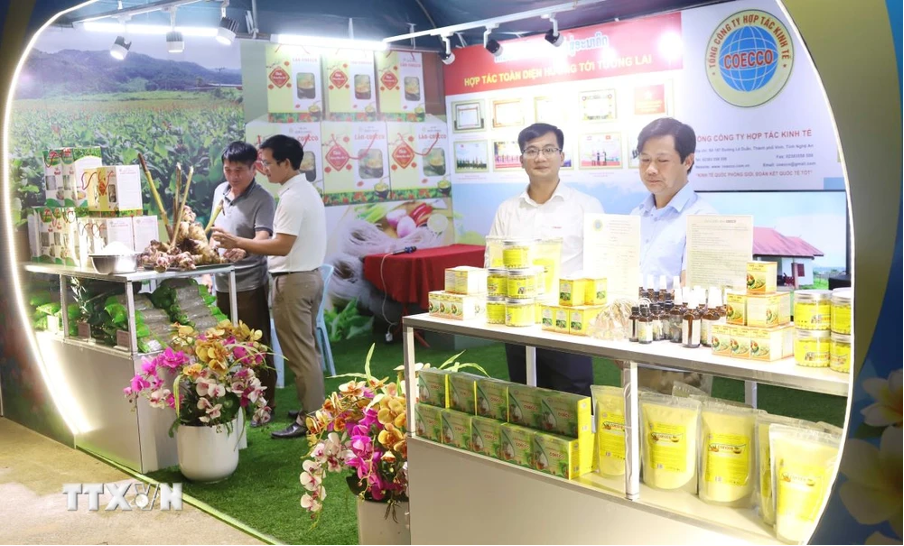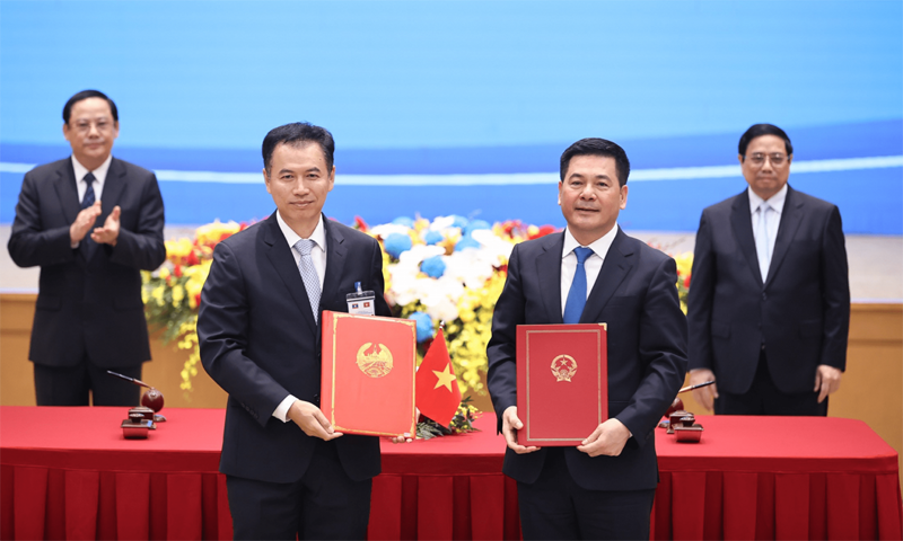MOIT VIETNAM | Head of State: Four nations—Vietnam, Laos, Cambodia, and Thailand—one final destination
/ News
Head of State: Four nations—Vietnam, Laos, Cambodia, and Thailand—one final destination
During the 54th Annual Conference of the World Economic Forum (WEF) Davos in 2024, Prime Minister Pham Minh Chinh was a prominent speaker at the discussion session "Lessons from ASEAN" in Davos, Switzerland, on the afternoon of January 17 (local time).
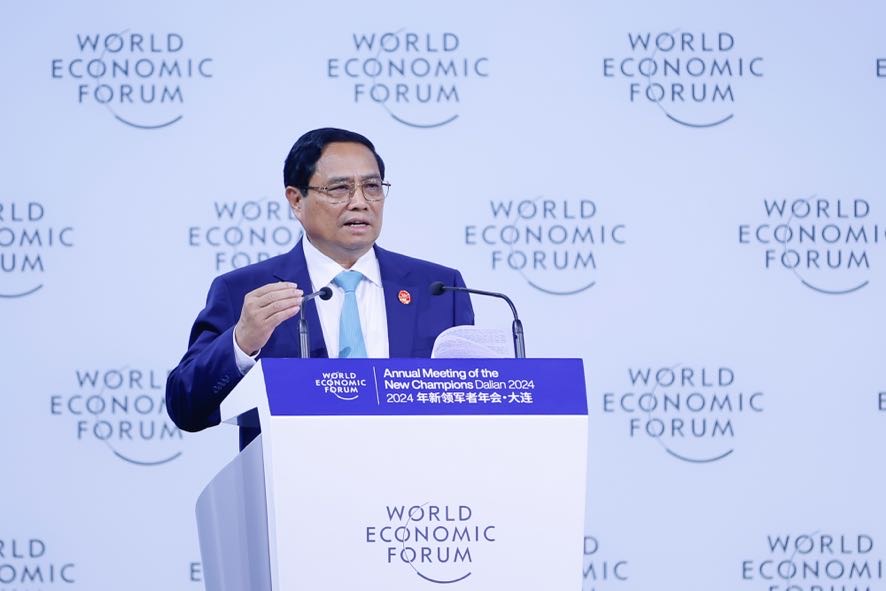
One common paradigm of regional economic cooperation is ASEAN.
Among those who met with the prime minister were Srettha Thavisin of Thailand, Ferdinand Martin G. Romualdez of the Philippines, Ngozi Okonjo-Iweala of the World Trade Organization (WTO), and numerous representatives from member nations, territories, corporations, and businesses of the World Economic Forum (WEF).
During the meeting, the heads of state spoke frankly and at length about the importance of ASEAN and its member states in capitalizing on opportunities presented by changing global supply chains, technological advancements like digital transformation, and the way major economies interact with one another.
Thanks to its members' concerted attempts to foster intra-bloc economic cooperation and exchanges on trade in products, services, and investments, ASEAN has emerged as a prototypical example of regional economic integration, according to the speakers.
Moving forward, a unified market and production platform will be established in stages, with active integration into the global economy being achieved via the Regional Comprehensive Economic Partnership Agreement (RCEP) and the FTA network with partners.
The member states of ASEAN have overcome cultural, political, and economic divides to form a cooperative bloc for economic growth, and they have done so by establishing strong trust amongst themselves. According to Ngozi Okonjo-Iweala, director general of the World Trade Organization, investors and partners alike may reap the benefits of ASEAN's welcoming investment climate.
Consequently, as a component of the "re-globalization" process, the supply chain is decentralizing towards many ASEAN nations.
The globe as a whole benefits from Vietnam, since it is a typical tourist destination with rapid growth and great tales.
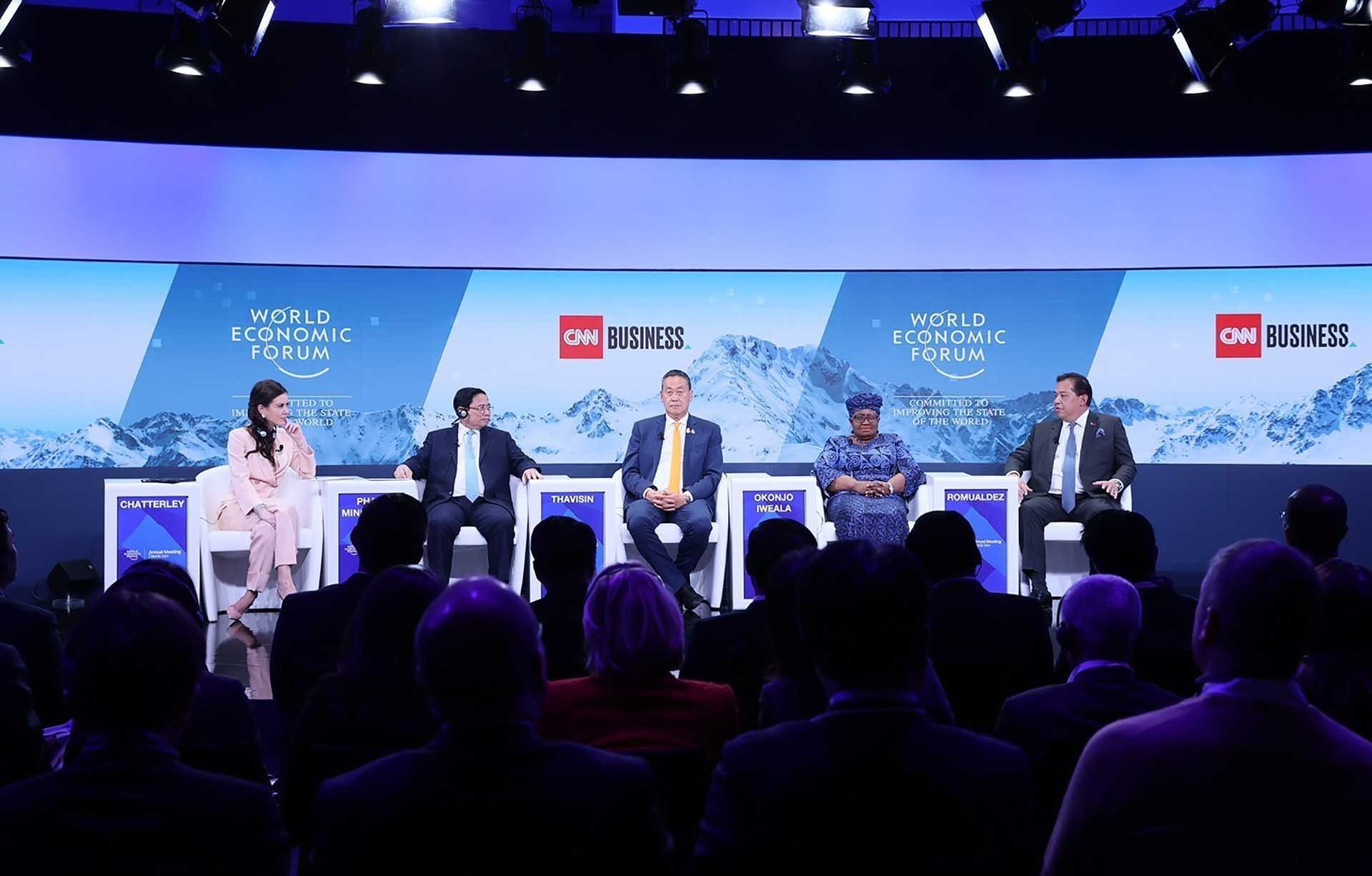
During his remarks at the roundtable, Prime Minister Pham Minh Chinh highlighted three main causes of ASEAN's present level of development success: To begin, unity among variety;
Secondly, encourage autonomy and self-sufficiency among member states and the bloc as a whole;
As a third point, we should push for all-encompassing development that views people as the focus, aim, and engine of progress.
Advancing unique capabilities, exceptional possibilities, and distinctive advantages
Embracing and capitalizing on each member nation's unique strengths, opportunities, competitive advantages, and capacities while staying in step with market demand and competitiveness is how ASEAN member nations work together to build a stronger organization.
In light of emerging development opportunities, such as the process of shifting supply chains, the Prime Minister has stated that this trend is inevitable due to the laws of competition and supply and demand. He has also stressed that nations can only achieve sustainable development by adopting a win-win strategy, recognising the autonomy of each nation, and establishing trust through honesty, unity, and fairness.
According to the Thai prime minister, who was quoting Prime Minister Pham Minh Chinh, the Vietnamese leader had proposed a "4 countries, 1 destination" tourist development initiative in which Laos, Cambodia, Thailand, and Vietnam would all pool their resources.
In a statement, the prime minister of Thailand warned that low labor costs could impede the development of ASEAN countries and urged his fellow citizens to band together to raise the minimum wage and make the region more competitive in order to draw in outside investment.
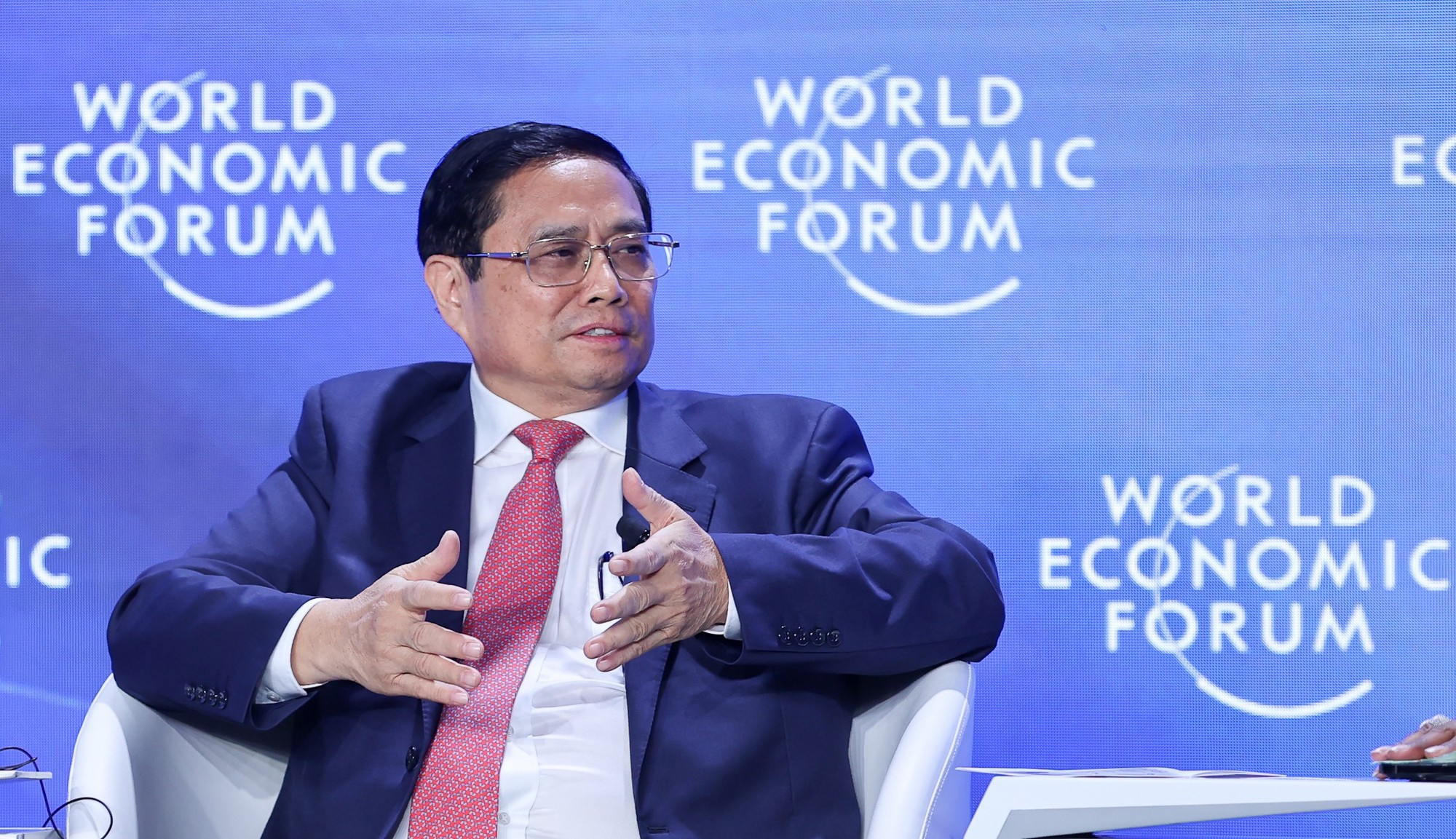
According to Prime Minister Pham Minh Chinh, there has to be cooperation and support between the digital economy and the green economy in light of the current trend toward digital transformation. The most vulnerable must be considered throughout implementation, and the process must go at a pace and in a way that each nation can handle, all the while ensuring social justice and security are not compromised.
During his speech, the prime minister outlined the vision for ASEAN in the next 5-10 years. He said that the bloc would be a unifying force and a hub for global economic development, where everyone's economy will benefit.
All of the speakers at the roundtable praised Vietnam for its responsible contributions to ASEAN unity and for working together with its other members to address global and regional challenges.
Several speakers echoed the Prime Minister's sentiments on the best way forward for ASEAN's integration and win-win cooperation, reiterating the importance of the organization's unity and solidarity while also pledging to remain impartial and promote ASEAN's pivotal role in the globalization process.
-
/ News / Activities
Affirming the Historic Significance and the Profound Friendship between Vietnam and Laos
On the morning of October 25, in Hanoi, the Ministry of National Defense organized a scientific seminar titled “Vietnamese Volunteer Soldiers and M...
-
/ News / Activities
Vietnam and Laos Strengthen Image Promotion, Trade, and Tourism Initiatives
The Vietnam-Laos Trade Fair showcases over 20 booths from various provinces in Vietnam, as well as some booths from districts in Xiengkhouang Provi...
-
/ News
Implementation Plan for the Memorandum of Understanding on Developing and Connecting Border Trade Infrastructure between Vietnam and Laos
Deputy Prime Minister Bùi Thanh Sơn Signs Decision No. 1247/QD-TTg Issuing the Plan to Implement the Memorandum on Developing and Connecting Border...



